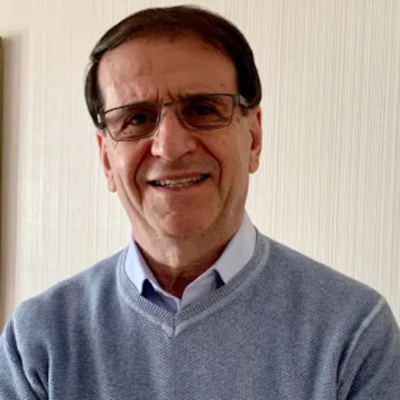
HARTFORD – A longtime Newtown psychiatrist has agreed to pay more than $450,000 to settle claims in civil court here that he illegally wrote opioid prescriptions without a medical purpose, the U.S. Attorney for the District of Connecticut Vanessa Roberts Avery announced.
Avery stated on Jan. 2 that Dr. Naimetulla Ahmed Syed, who has offices in Danbury and New Haven, has entered into a civil settlement agreement with the federal and state governments and agreed to pay $455,439.26 to resolve allegations that he violated the federal and state False Claims Acts and the civil provisions of the Controlled Substances Act (CSA) relating to his issuance of medically unnecessary controlled substances prescriptions.
“Naimetulla Ahmed Syed defrauded the state and endangered his patients,” said state Attorney General William Tong. “Today’s settlement reflects the joint efforts of numerous layers of state and federal law enforcement to ensure he pays for his misconduct and never practices medicine again.
“We have all seen firsthand the devastation wrought by the opioid and addiction crisis – the thousands of grieving families across Connecticut with empty seats at their holiday tables. We will not hesitate to use every ounce of our authority to hold accountable the individuals and entities who have perpetuated and profited from this epidemic.”
Syed, who had been licensed as a doctor of psychiatry, was the sole practitioner at his medical offices in Danbury and New Haven.
On June 16, 2021, Syed voluntarily surrendered his federal Drug Enforcement Administration licenses. Syed also entered into an agreement with the state Department of Public Health in which he agreed to cease the practice of medicine as of Nov. 25, 2024, and to not renew his physician license, which expires this month.
In the agreement released by U.S. Department of Justice and state Office of the Attorney General, it is alleged that, between June 2016 and June 2021, Syed issued medically unnecessary prescriptions – including prescriptions for controlled substances – for which Syed caused false claims to be submitted by Cornerstone Pharmacy, Inc. (doing business as “Whalley Drug”) in New Haven to Medicare and Medicaid for those medically unnecessary prescriptions. Syed also billed Medicare and Medicaid for medically unnecessary office visits related to those medically unnecessary prescriptions.
In addition, it is alleged that Syed issued prescriptions for controlled substances without a legitimate medical purpose and not in the usual course of professional practice, in violation of Syed’s obligations under the CSA.
Syed issued prescriptions for excessive and unsafe amounts of benzodiazepines; for controlled substances to individuals displaying red flags of abuse, addiction, or diversion, including to individuals who received dangerous combinations of controlled substances (including the high-risk “holy trinity” drug combination of at least one opioid, benzodiazepine, and a muscle relaxant); and to an individual for buprenorphine, a synthetic opioid that can be used to treat opioid use disorders, at the same time that this individual was receiving oxycodone and hydrocodone from other providers.
He also failed to maintain adequate treatment records, and maintained patient files devoid of any information documenting an examination or reasons for the prescriptions, or establishing a doctor-patient relationship, the settlement states.
In addition to making payment of $455,439.26 under the civil settlement agreement, Syed agreed to a 20-year exclusion from Medicare, Medicaid, and all other federal health care programs, as well as a 20-year suspension from the Connecticut Medical Assistance Program.
In 2016, Syed paid $422,641.70 to resolve federal and state allegations that he submitted false claims for psychotherapy services to Medicare and Medicaid.
In April 2024, Cornerstone Pharmacy (d/b/a Whalley Drug) and its owner, Yong Kwon, paid $120,000 to resolve allegations that they violated the CSA by filling invalid prescriptions. Kwon voluntarily surrendered the DEA license for Whalley Drug, which no longer operates as a retail pharmacy, on June 22, 2021, after the DEA’s execution of a warrant.



















